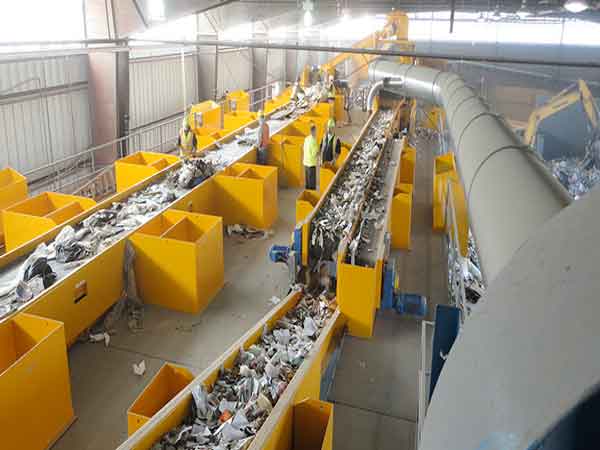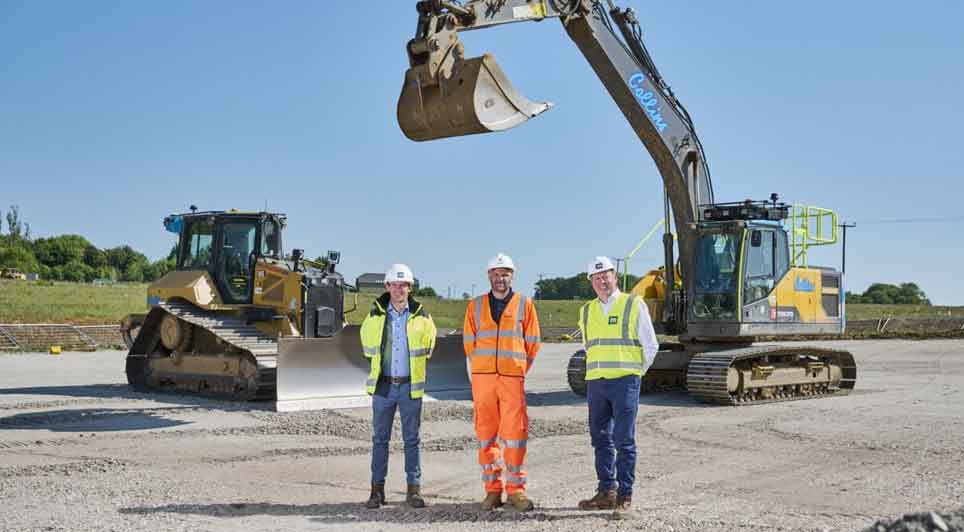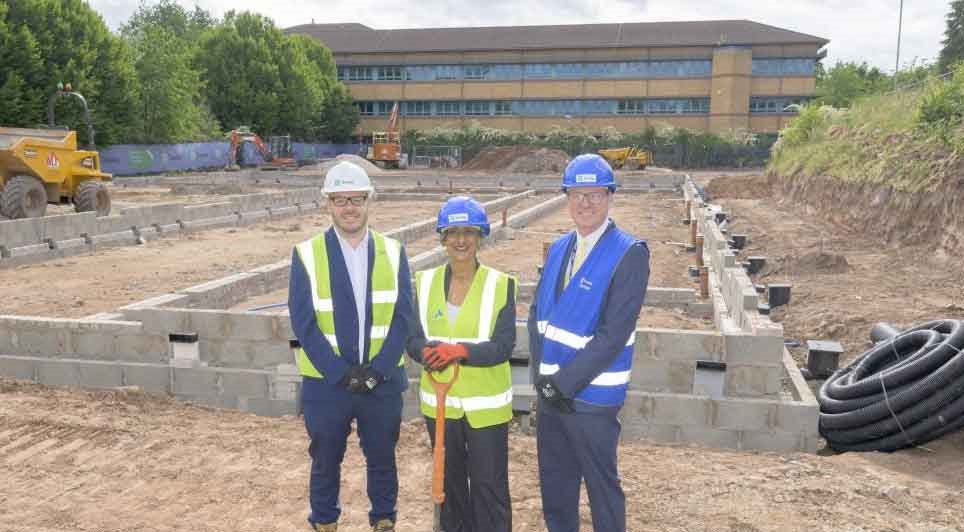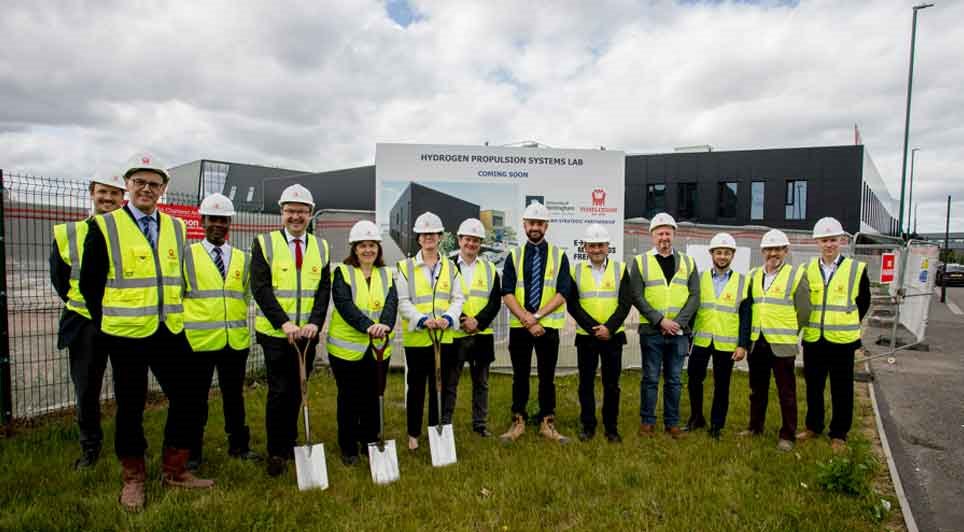Construction is an industry that uses materials unlike any other.
From bricks and mortar through to glass, PVC, and timber, the construction industry uses around 400 million tonnes of materials every single year. And if you think that’s a lot, take a moment to consider that approximately 100 tonnes of this becomes waste. It’s either burnt, sent to landfill, or illegally dumped and it's harming the environment.
As a contractor, waste disposal is part of your job description and it is your responsibility. Proper waste disposal and recycling on the construction site is important and in this article we're going to tell you why.
But first, what exactly can be recycled?
Construction Materials that Can be Recycled
The great thing about construction today is that there are so many materials available - many of which can be recycled. You can purchase everything from composite to steel and recycle any waste that is left over. Below is a list of the most commonly recycled construction materials:
Asphalt
Concrete
Steel
Timber
Glass
Plastics
Paper
Cardboard
Bricks
Plasterboard
Gypsum
Now that you know which construction materials can be recycled, let’s take a look at why it's important.
How Construction Materials Impact the Environment
According to research, the construction industry is responsible for 39% of carbon emissions worldwide. From this figure, 28% is a direct result of energy consumption and 11% from construction materials. The construction industry negatively impacts the environment in the following ways:
Climate Change
Perhaps it goes without saying, but the construction industry is having a significant impact on climate change. The shocking statistic above, highlighting how the construction industry is responsible for 39% of carbon emissions, truly shows how significant the problem is. This is because many of the materials that have been used in construction over the years have been farmed, mined, or sourced from forests.
These are all non-sustainable methods that have (and continue to) have a significant impact on climate change.
Destruction of Natural Habitats
The construction industry plays a big part in the destruction of natural habitats. From the sourcing of materials to the clearing of land, the loss of natural habitats is severely impacting species’ lives.
Carbon Emissions
Another way the construction industry is negatively affecting the environment is through carbon emissions. Not only are many of the materials sourced using non-sustainable methods, they then have to go through the manufacturing process. Manufacturing ensures the materials are ready to be used on the construction site.
However, the manufacturing process is powered by fossil fuels, emitting huge amounts of carbon into the atmosphere and polluting the air. According to The World Health Organisation, there are over 4.2 million deaths each year that have been directly caused by air pollution.
Water Pollution
Just as it does the air, construction is polluting our water. Many construction sites cause run-off into nearby lakes, streams, and rivers. Much of the sediment lying around on construction sites ends up in our waterways.
Some of the most common pollutants include; paints, oils, toxic chemicals, glues, and cement. Having these kinds of materials polluting the water doesn't just impact human lives, but it can have an extremely negative effect on aquatic life.
Landfill Waste
According to the WP Group, “32% of landfill waste comes from the construction industry alone - that’s an estimated 77.4 million tonnes a year.” Construction contributes significantly to the world’s landfill problem, throwing away materials like wood, plastics, concrete, glass, and so much more. Sadly, much of this comes down to laziness. So many of the materials that end up in landfill could have been repurposed or recycled.
The Importance of Recycling in Construction
So, now that you know everything negative about construction and the impact it can have on the environment, let’s take a look at the importance of recycling. Did you know that by recycling construction materials properly, the environmental impact of the construction industry could be significantly reduced. Below are the reasons why recycling in construction is so important.
Look After the Environment
More than ever before, today’s consumers are passionate about looking after the environment. With so many news stories about climate change, habitat loss, and rising sea levels, consumers want to back companies that are taking steps to reduce their climate footprint.
According to Forbes, "As demand for environmental considerations builds, a growing number of investors, and even employees are questioning traditional construction methods and pushing for more sustainable business practices." Recycling construction materials is playing a huge part in this transition towards greener construction practices. It ensures materials don’t end up in landfill or polluting the environment.
Recycling Saves on Costs
If you are looking for ways to reduce your costs, recycling is a cost-effective solution. Not only does recycling save you money on landfill fees, it also negates the need for purchasing new materials. This is particularly helpful at the moment as, due to the pandemic, the construction industry has been dealing with some of the worst material shortages since the war!
Going green will save you time and money in the long-term. Even though the initial purchasing of greener materials may be a little more expensive, you will be investing in a more future-proof business model as the demand for greener practices in construction continues to increase. What’s more, according to How Stuff Works, “Economic analysis shows that recycling can generate three times as much revenue per ton as landfill disposal and almost six times as many jobs.” Not only does recycling save money, it can also make you money, too!
Reduce Energy Use
Prioritising recycling in the construction industry can save tonnes of energy as it reduces the consumption of natural resources. Recycling also reduces the energy usage required to compact construction materials before putting them into landfill.
Recycling Reduces Waste in Landfills
One of the most important reasons for recycling construction materials is that it reduces the amount of waste that ends up in our landfills. This helps reduce our negative impact on the environment and repurpose materials for future use.
According to the European Environment Agency, "Diverting waste away from landfills prevents pollution that can harm our health and the environment. Reducing, reusing and recycling waste can bring economic gains and secure access to critical raw materials. More jobs at higher income levels are also created by recycling than by landfilling or incinerating waste."
Recycling Offers a Competitive Edge
As we have already mentioned, there is an increasing demand for sustainable construction. The definition of sustainable construction, according to The British Assessment Bureau, "means using renewable and recyclable materials when building new structures, as well as reducing energy consumption and waste. The primary goal of sustainable construction is to reduce the industry's impact on the environment."
So, in being proactive with your recycling efforts you will quickly gain a competitive edge. This will help you stand out from the construction companies who aren’t recycling and will, in many cases, make your organisation the more favourable choice.
The importance of recycling in the construction industry cannot be understated. It will literally help shape the future of our planet. We hope the information in this article has encouraged you to consider the changes you could be making on the construction site to reduce your environmental impact. Being proactive and prioritising recycling alone will make a big difference.
Construction News
15/09/2022
Contractor Responsibility: The Importance Of Recycling In Construction


06/06/2025
Robust UK Ltd, the UK's leading manufacturer of steel door solutions, has launched one of its most established and reliable products, INNA-DOR, with a new brochure now available.
Well known to long-standing customers, INNA-DOR has earned its reputation as a high-performing interior steel doorset, t

06/06/2025
Amrin Resources Ltd were appointed to oversee the remediation of life critical fire safety risks at Beetham Tower Liverpool, a 26 storey block of flats at the mouth of the river Mersey, following the recommendations contained in a Fire Risk Assessment of External Works, with the replacement of exist

05/06/2025
Construction has officially begun at Towcester Park, a major new employment development by IM Properties (IMP), with Winvic Construction Ltd appointed as the main contractor for the project's initial phase.
The 1.1 million sq ft development is expected to generate up to 1,500 jobs once fully occupi

05/06/2025
Work has officially commenced on a £3.5 million expansion at Finham Park 2, which will bring new classrooms, enhanced sports facilities, and dedicated office space to the growing Coventry school.
Appointed by Coventry City Council, Deeley Construction is leading the project, which includes the cons

05/06/2025
Chichester District Council has formally approved plans by Countryside Properties, now part of the Vistry Group, for the development of 1,300 new homes and community facilities in Tangmere.
The planning decision notice marks a major milestone for the 'Tangmere Strategic Development Location Site',

05/06/2025
A senior government delegation, led by Investment Zone Minister Alex Norris MP, visited the University of Nottingham's under-construction Hydrogen Propulsion Systems Lab last week, marking a major milestone in the East Midlands' emergence as a hub for net zero innovation.
The hard hat tour brought

05/06/2025
A major regeneration scheme to transform a neglected part of Northampton town centre has taken a significant step forward, as West Northamptonshire Council (WNC) and ECF – a joint venture between Legal & General, Homes England, and Muse – have formally entered into a Development Agreement to deliver

05/06/2025
Unite Students has announced the exchange of contracts for the sale of a portfolio of nine properties to an affiliate of Lone Star Funds in a deal worth £212 million (Unite share: £140 million).
The portfolio includes 3,656 student beds located in Aberdeen, Leicester, Leeds, Nottingham, and Sheffie
05/06/2025
GMI Construction Group has celebrated a major milestone in the redevelopment of JATCO's UK facility at the International Advanced Manufacturing Park (IAMP), with a steel signing ceremony marking the completion of the building's structural framework.
The £4.9 million project, commissioned by Sunderl

05/06/2025
John Ford, Head of BIM and Digital Delivery at Galliford Try, has been recognised as one of Digital Construction Plus’s 2025 Digital Construction Power Players.
The accolade celebrates his significant impact on the industry through his leadership in Building Information Modelling (BIM) and develop
 UK
UK Ireland
Ireland Scotland
Scotland London
London











